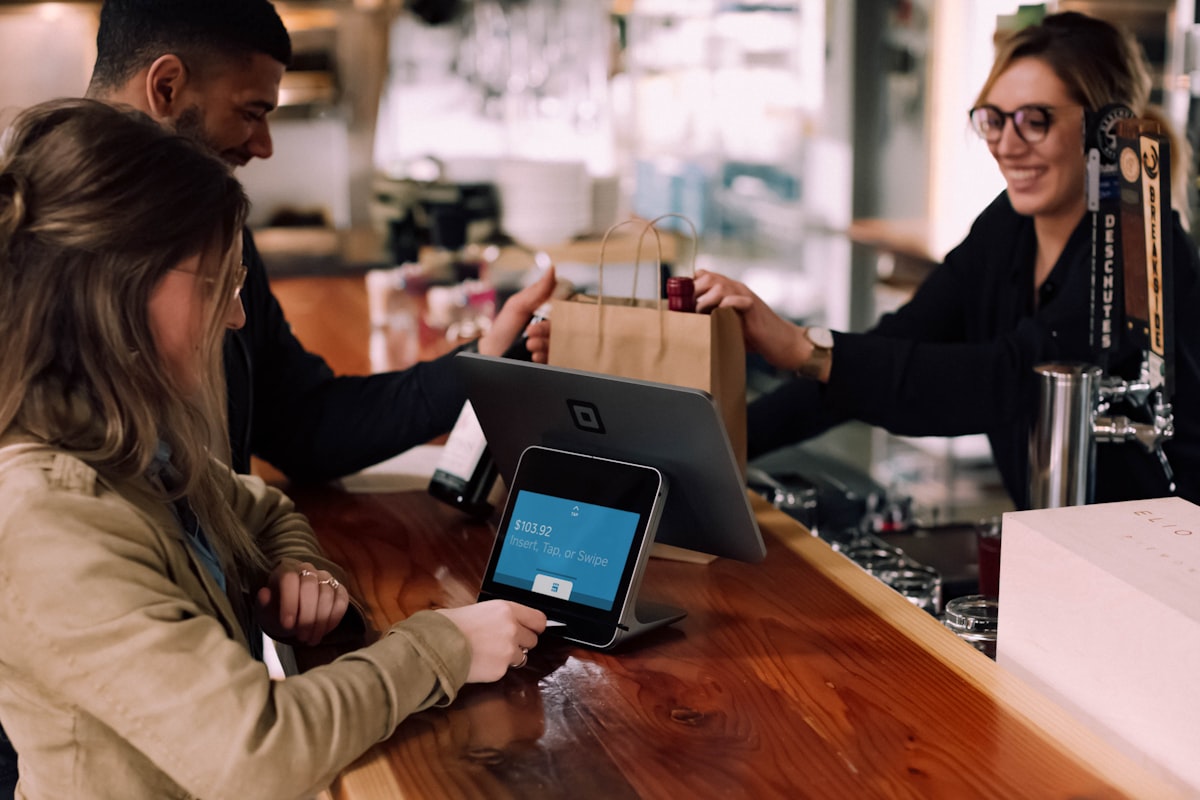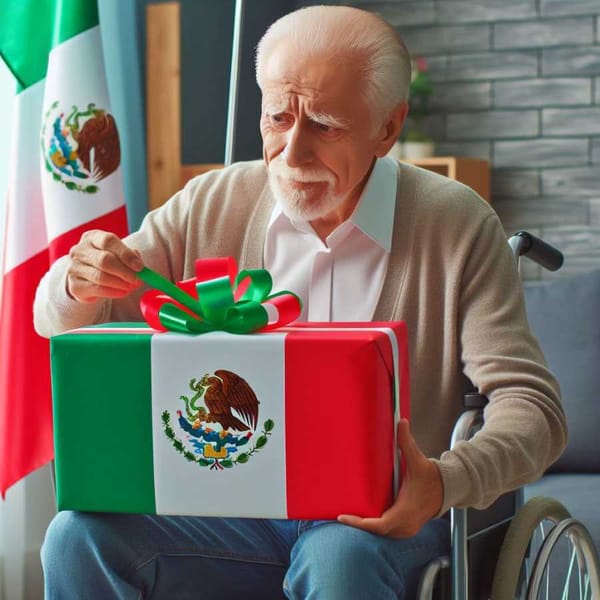Neobanks, goodbye to (almost all) commissions
Neobanks came into the financial system to end the "headaches" that traditional banks cause for cardholders. Meet five 100% digital alternatives.

Long lines, cumbersome procedures, high commissions, maintenance costs, and even armed robbery. These are "headaches" that we have suffered at some point when we go to a bank branch to request a service or solve a problem. To solve them, neobanks have arrived in Mexico, financial technology startups (fintech) that offer 100% digital products, without branches and that work through mobile applications.
"The neobanks came to simplify the user experience by hiring a financial service from the palm," says Andres Fontao, managing partner of Finnovista. They offer practicality, agility, and immediate attention at the click of a button, in addition to greater facilities for obtaining an account or debit and/or credit card.
This trend emerged in Europe, then in the United States, and has been landing in Latin America for the last six years, where companies like Nubank do Brasil have demonstrated the profitability and scalability they can have.
In the Mexican market, says Fontao, there are great opportunities for entrepreneurship in this sector, since only 68% of the population (54 million people) have at least one financial product, according to the third National Survey of Financial Inclusion (ENIF) conducted by the National Banking and Securities Commission (CNBV).
The rest of the population is unbanked and is a segment neglected by traditional banking. As if that were not enough, only 3% of the middle class obtains a credit, and while in Mexico 15% of adults have a credit plastic, in Brazil it is 32%, according to data from the World Bank.
Hence the need to address this niche with new digital financial solutions. "The more startups there are, the more competitive the market will be, which will translate into benefits for users and improvements to the banking offer. These are five neobanks that are already operating in Mexico.
Nu Mexico, simple financial services
Six years ago, David Velez, Cristina Junqueira, and Edward Wible founded the technology company Nubank in Brazil with a mission to combat complexity in the financial industry with technology, to empower clients, and give them back control of their money.
"In Brazil, the top five banks concentrate 80% of the market, the commissions are high and the service is not the best, something very similar happens in Mexico, and with the technology that exists today, with many people connected to their smartphones, there was no reason for things to be like this," explains Emilio Gonzalez, general manager of Nu Mexico.
Nubank started in Brazil as a Mastercard credit card operated 100% from a mobile application, and today offers other services such as a debit card deposit account, personal loans, credit card reward products, and deposit accounts for SMEs.
In August 2019, the startup announced the launch of its credit card in Mexico under the name Nu Mexico, and today they are testing it with a group of users who signed up for a waiting list. They have a local team dedicated to creating products that work according to the needs of Mexicans. "Although the markets are similar, people occupy the credit card differently," Emilio details.
The business model works primarily through two sources of revenue, Emilio explains, the first being the interchange fee - the per-transaction fee charged to merchants by any financial institution when their card is used - and the second being the interest generated by a credit card when the balance is not paid in full. In addition, he points out, by not having branches and operating digitally they are more efficient and pass on those savings to the customer.
Regarding their value proposals, compared to traditional banks and other neo-banks, Emilio assures that through technology they generate transparency to remove any fears that users have. "We give them tools such as notifications of their operations in real-time, they can block and unblock their card, adjust their credit limit, access all their statements, simple contracting process, and 24-hour customer service," he details.
The business opportunity that Nubank sees in Mexico is huge because 50% of the population is under 24 years old and the average age is 28, they are people used to using many digital products such as Netflix, Spotify, Didi, Cabify, Amazon, but they are still unbanked. And, as it happened in Brazil, Emilio says they want to attract people who were not looking for a card, but also those who are not satisfied with the current offer.
Nubank is considered a "deca unicorn" - a company that reached a valuation of US$10 billion - and is backed by funds like Sequoia Capital, QED Investors, Kaszek Ventures, Tiger Global Management, Founders Fund, DST Global, Redpoint Ventures, Ribbit Capital, Dragoneer Investment Group, Thrive Capital, Tencent, Jaguar Ventures and Grupo Topaz, the latter two Mexican investors.
Albo, a better financial experience
Angel Sahagun opened his first startup at age 19, it was a fintech that helped people control their expenses and section payments. Not having a profitable business model, he had to close it down. Later, he started a software firm for financial institutions, and in the course of that venture, he realized that clients were not comfortable with traditional banking, as they were charged many commissions and the service was poor.
Then, in 2015 he closed his second company to found Albo, a neobank that allows you to open an account from your mobile application in a few minutes, without opening cost, and gives you a physical debit card to buy on the Internet and establishments without commissions. With this plastic that is sent to your home, you can also receive and withdraw money at any ATM in the world that accepts Mastercard, and you can charge it through an electronic transfer or deposits at Oxxo stores.
Albo's greatest competitive advantage is the experience it provides to its users. Although banks already have mobile applications to make transactions, says Angel, at some point you have to go directly to the branch. On the other hand, with Albo everything is 100% digital, with personalized attention, you can update documents, request statements, make transfers, track payments, check your balance, save more, and spend less.
The company generates income every time the customer uses the Albo card through the interchange fee. Today this neobank has 150,000 customers who remain active, and on average opens up to 4,000 accounts every day. Since its launch in 2016, after almost two years of product development and validation, it has raised $8.5 million with investment funds such as Mountain Nazca and Greyhound Capital.
Angel is aware that the market for neobanks is growing, so he plans to be one step ahead with innovation. They are investing in technology and process automation to improve the application and be up to 100 times faster and less expensive. As part of their strategy to scale, they also plan to expand their team. "Attracting the best talent is critical to scaling a company like ours.
The entrepreneur started this business with the vision of improving the financial system in Mexico, in a small office located in Campeche and with four talents. Now his team of 90 people is in Mexico City, and they are preparing to serve one million Mexicans in the coming years with new products such as credit and savings so that customers can do more with their money. Always with the premise of helping all people have access to financial services.
Weex Wallet, the card for young adults
Ricardo Suárez is a serial entrepreneur, whose business includes JackBe (2003), a real-time data analysis platform, which was later acquired by the German company Software AG. In addition to Yumbling (2011), and entertainment guide with social and gaming content, which he later sold to a media company.
In 2017 he founded Weex Wallet (now MIBO), his sixth venture, with the vision of offering a digital, innovative, and technological product for a segment of young adult users (18-39 years old) who, for different reasons, do not trust traditional banks and are looking for an alternative to join the financial world.
Weex Wallet works as an application that the user downloads to the smartphone, registers, and, in less than five minutes, without going to a branch, has access to a Mastercard debit account with which he can buy worldwide. You can also purchase a card to pay physically or withdraw money from an ATM.
This 100% digital bank does not charge opening fees, account management, or minimum balances because those are the things traditional bank users hate the most. "Weex earns from some traditional ways like the exchange rate, which any financial institution charges, and from others like the commissions generated by airtime recharges and movie ticket purchases.
Ricardo is convinced of the great market opportunity that neobanks have in Mexico since 60% of adults do not have an active bank account and 90% of payments are still made in cash. "If we see the growth of e-commerce is 30% per year, and a key element is how you are going to pay, you need to be banked to buy in China, the United States, or Mexico. People want to have a more digital life.
Therefore, he says, "our value proposition is that users have an excellent experience, where there are the lowest possible fees and where the same platform makes your life easier daily, so you can receive money, transfer, pay, make investments, get credit, all in a friendly, attractive and cheap platform". The platform has more than 500,000 user accounts that have come to the brand by word of mouth and also with very well-segmented campaigns in digital media.
The future vision of Weex Wallet, according to its founder, is to consolidate itself as the neobank with the highest number of transactions, as well as to grow in terms of products and users. So the next product they will launch is a credit card from the hand of a Financial Society of Multiple Object (Sofom) to incur in the part of the credit, important in any business model of a financial institution.
Bnext, a financial services marketplace
Guillermo Vicandi and Juan Antonio Rullan founded Bnext in December 2017, a Spanish fintech company that offers an account and a debit card, with no fees or conditions, but which has also built up a marketplace for financial products. "What we do differently from other neobanks and traditional banks is that we have many suppliers connected within the application and we help our clients find the best product to suit their needs," explains Guillermo.
Users download the mobile application, create an account and get a card, but if they need to take out life insurance or a mortgage, Bnext helps them find, compare and contract the service of a third party, all within the same application. "For this to work well, we must analyze the user's financial profile and ensure that all services are well integrated," says Guillermo.
Their business model does not work like banking services that charge commissions to the customer, but rather they do business by charging a commission to the providers that offer their products in the marketplace.
"We negotiate a different commission with each supplier, which makes sense to them, because it is not the same to take out travel insurance, which is temporary, like life insurance, which is long term. It is a matter of the supplier is happy with the volume and quality of the clients we send them and that they earn money", he explains. In fact, "as we have more clients, suppliers are happier with us," he adds because it is cheaper for them to capture clients from the marketplace than directly.
Bnext has more than 300,000 active users in Spain, who can access 17 different products (loans and savings) from 12 suppliers. Thus, users can find lending (consumer loans, microloans, and mortgages), investment (share purchases, remunerated accounts, term deposits, indexed funds), insurance (travel, mobile, health, and life), and others such as currency exchange and mobile phone services.
The application arrives in Mexico this December with a first version that includes an account and card, as well as loan and reward services. Guillermo says they have the technology to include a new product in the marketplace in just two weeks.
Spanish entrepreneurs chose to begin their expansion to Latin America with Mexico because there is a significant growth of cheaper fintech products, more portable, and better service. "By grouping all this offer within a marketplace we can give the customer greater visibility of all the options, centralize the offer and help him to choose".
Klar, the card that reimburses you
Stefan Möller is one of the millions of Mexican bankers who have experienced first-hand how cumbersome it can be to attend a bank branch. "You can't wait 30 minutes at the bank to be told you can't do something or listen to a little music on the phone several times until the problem is solved," says the entrepreneur.
Tired of this situation, Stefan, an entrepreneur since the age of 22 in Mexico and Germany, and his partner Daniel Autrique, who has spent his professional career in the financial and investment sector in Mexico and Spain, founded Klar, a fintech that provides a debit and credit card to deposit, withdraw and buy with the same money that the user deposits in the virtual account he obtains.
Funds to the card can be made through cash deposits at any bank branch or convenience store, and by electronic transfer. This is because 90% of Mexicans use cash to make payment transactions or purchase a product, according to the Bank of Mexico.
Both cards are backed by Mastercard and the procedure to obtain them is 100% online through a mobile application where you can see all movements in real-time, block, unblock and cancel the account. Unlike other traditional plastics, Klar does not generate commissions, nor opening costs, annuities, penalties for not maintaining a minimum amount or for making transfers. It offers cashback of up to 4%, depending on how much you spend and have in your account.
The product is also aimed at those who do not have access to financial services, and generations who do not have job stability, such as freelancers. The entrepreneur explains that technology is the foundation of this company, because, through artificial intelligence, machine learning, and other technologies, they can know how much the user earns, how much and how he spends, all to determine if he is a potential user of these cards.
With this model of neobank, they conquered Santander in September this year, the banking institution that invested 57.5 million dollars in his company. It's the biggest fundraiser in the history of Latin America for a project of this kind at an early stage," says Daniel, co-founder. Now they are looking to get their product to millions of unbanked users in Mexico who are not happy with the traditional banking service, to expand worldwide.




